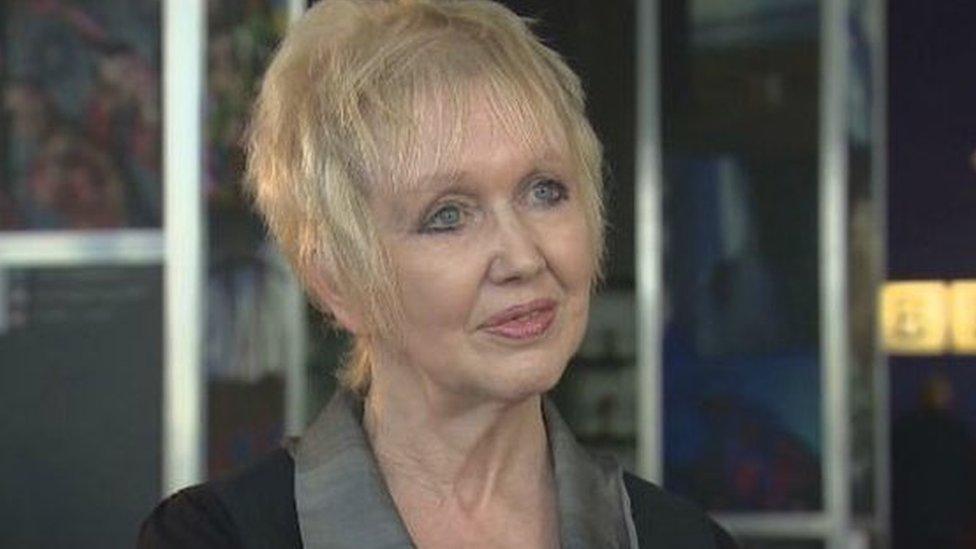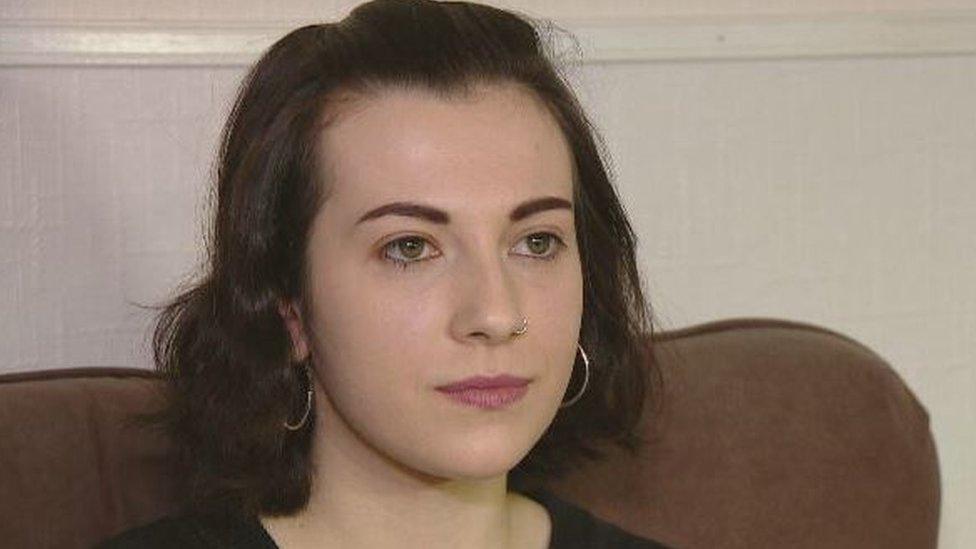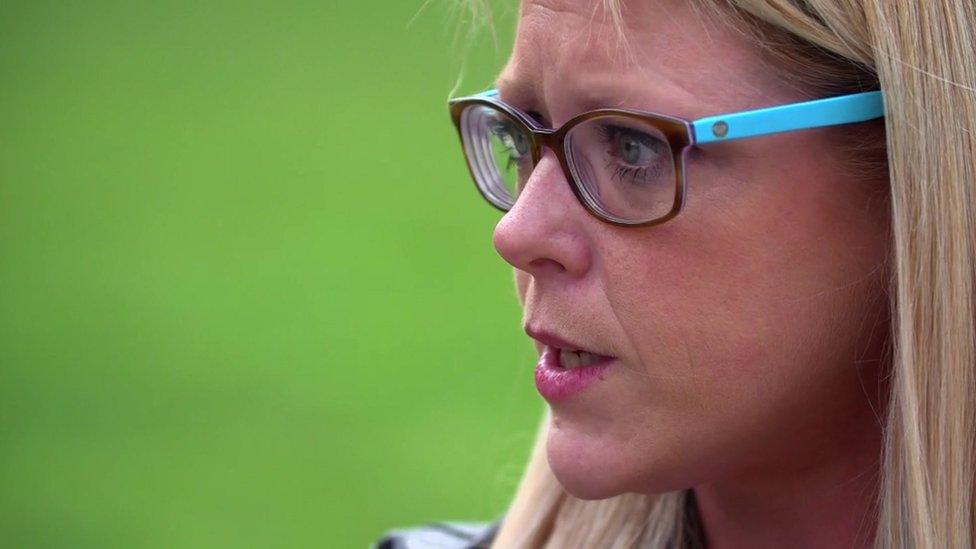Teenage eating disorder treatment 'patchy'
- Published

Elijah is mostly upbeat in her vlogs but she has spoken about her struggle with anorexia to help others
A top psychiatrist has told BBC Scotland she feels "guilty" about the patchy treatment offered to some young people with eating disorders.
More than half of Scotland's health boards were unable to respond to a BBC request for information on the treatment of teenage eating disorders.
Those that did reported waiting times ranging from six to 62 days.
The Scottish government said teenagers with eating disorders were being seen within its 18-week target.
However, the generic 18-week waiting time target is for all mental health conditions and most health boards could not provide specific figures for eating disorders.
The eating disorder charity Beat said anorexia nervosa had the highest mortality rate of any psychiatric illness.
It wants the Scottish government to introduce a specific, shorter waiting time target for eating disorders.
No standard method
In England there is a four-week target for teenagers with eating disorders, although it is not always met.
The BBC asked all 14 NHS boards in Scotland how long under 19s with an eating disorder waited between referral and treatment.
Eight health boards either did not have the figures or could not supply them.
For the rest there was no standard method to record the data, so accurate comparisons were difficult.

Dr Jane Morris feels 'guilty' at the patchy treatment offered to young people.
In Tayside, the average wait to access child and adolescent mental health services was six days.
Dumfries and Galloway said two teenagers waited an average of 62 days for treatment in adult services.
The Borders, Lothian, Forth Valley and Fife fell in between.
Dr Jane Morris from the Royal College of Psychiatrists told BBC Scotland: "The data is a bit worrying. It is very difficult for health boards to know what we mean by teenagers.
"Some gave figures for child and adolescent services, others for specialist eating disorder services, so figures are not comparable."
Dr Morris believes the treatments are inconsistent too.
She said: "It's not only waiting times that are patchy. People tend to get very different treatments depending on where they go.
"I feel very guilty. I feel we should be able to offer our patients the best that is available. And very often its just an accident of the clinicians you have and the training they bring with them."

'I felt stuck'

Elijah Holland is in recovery from anorexia
Elijah Holland, 22, is a vlogger from Strathaven, South Lanarkshire.
She was diagnosed with anorexia when she was 18 and waited three months after her diagnosis for treatment.
"It all started when I was about 18 in the final year of high school," she says.
"I decided I wanted to eat more healthy but it started going downhill.
"It got to the stage where 99% of food my mum made for dinner I wouldn't eat and I got to the point there were only about three dinners I would eat in rotation.
"My mum took me to the doctor in January 2014. He was good and picked up on what was wrong quickly and said he would refer me to a specialist.
"But it wasn't until about April when I had my first appointment with the specialist.
"I remember after I went to the doctor I did want to get better.
"I remember throwing myself into my college course to try to distract myself. I just felt stuck. There were times I would think tomorrow I am going to start eating more. But it never worked and I really did need that professional help.
"I find it ridiculous that young people have to wait.
"The longer people have to wait for treatment and professional help, the more their mental health can deteriorate. Even within the space of a week, once it starts it spirals out of control really quickly.
"I wish I could get those two years back but I can't so if we can get people professional help as quickly as possible they've got a better chance of going out and living their life."

'Highest mortality rate'
Sara Preston, spokeswoman for Beat, described treatment as a "postcode lottery".
She said: "We know eating disorders can have a devastating impact on someone's life, physically and psychologically and, in fact, anorexia nervosa has the highest mortality rate of any psychiatric illness, external, so we would push for having eating disorder-specific standards.
"In NHS England they have developed eating disorder waiting time standards. Those were much lower than those we have in Scotland and they also have a prioritisation of a one-week waiting standard in urgent cases.
"This is what we would like to see in Scotland."
The Scottish government said it expected health boards, local authorities and integration authorities to ensure they were delivering services that meet the needs of their areas.
Scotland's mental health minister said she was considering changes to the way data is recorded.
Maureen Watt said waiting times were only part of the picture.
She said: "One of the problems is that teenagers don't come forward early enough.
"Once they are in the system and referred by their GP, they will be seen as fast as possible.
"I am determined that throughout Scotland all will be seen within 18 weeks."
If you would like help or information about eating disorders, you can find support and links here.
- Published26 February 2018

- Published20 December 2017
